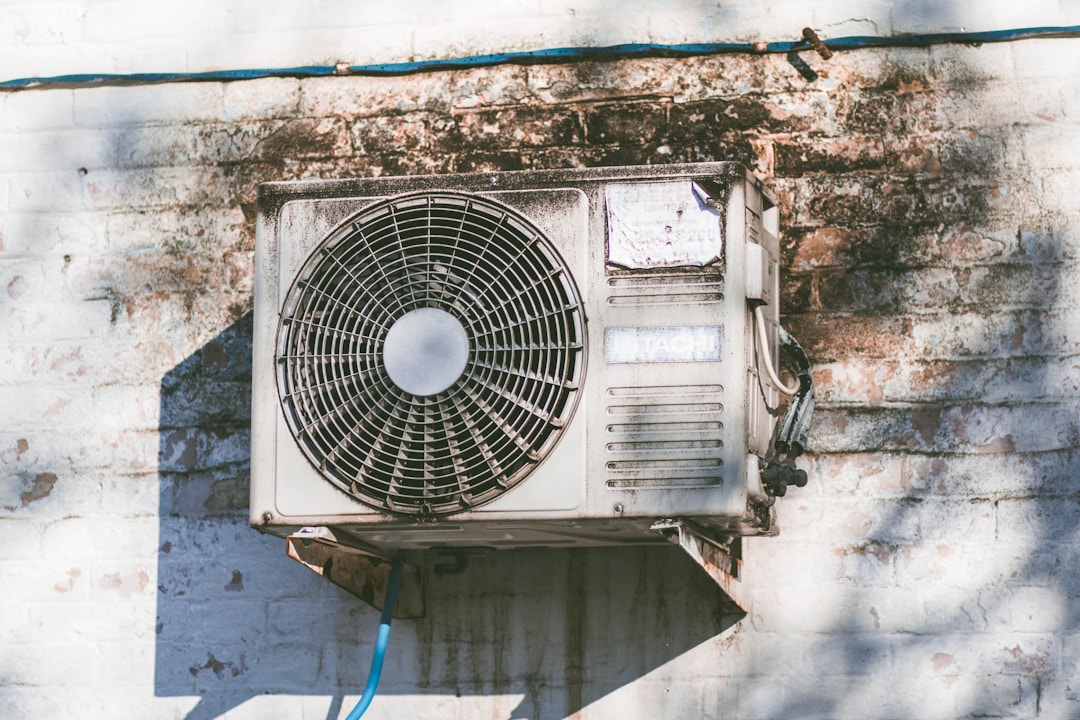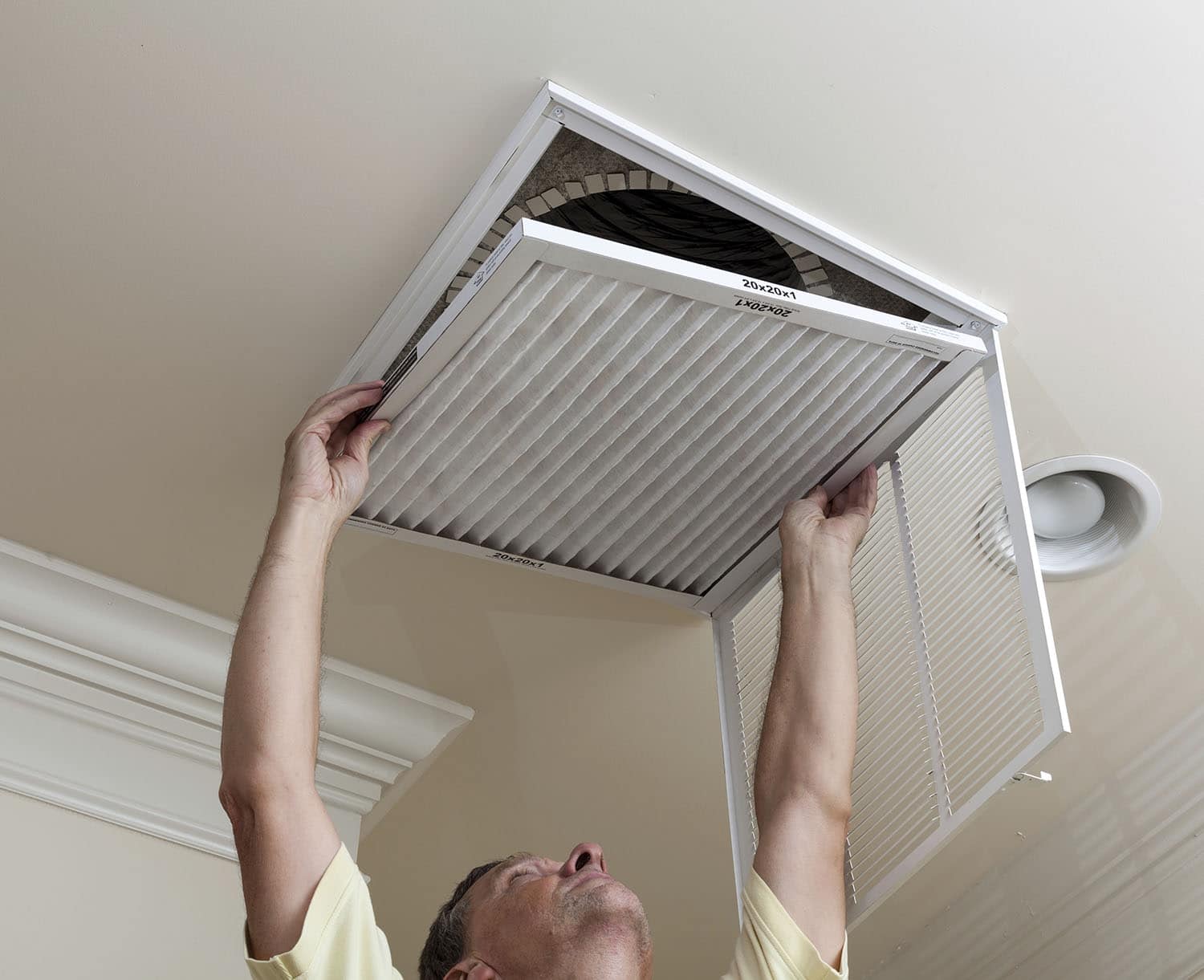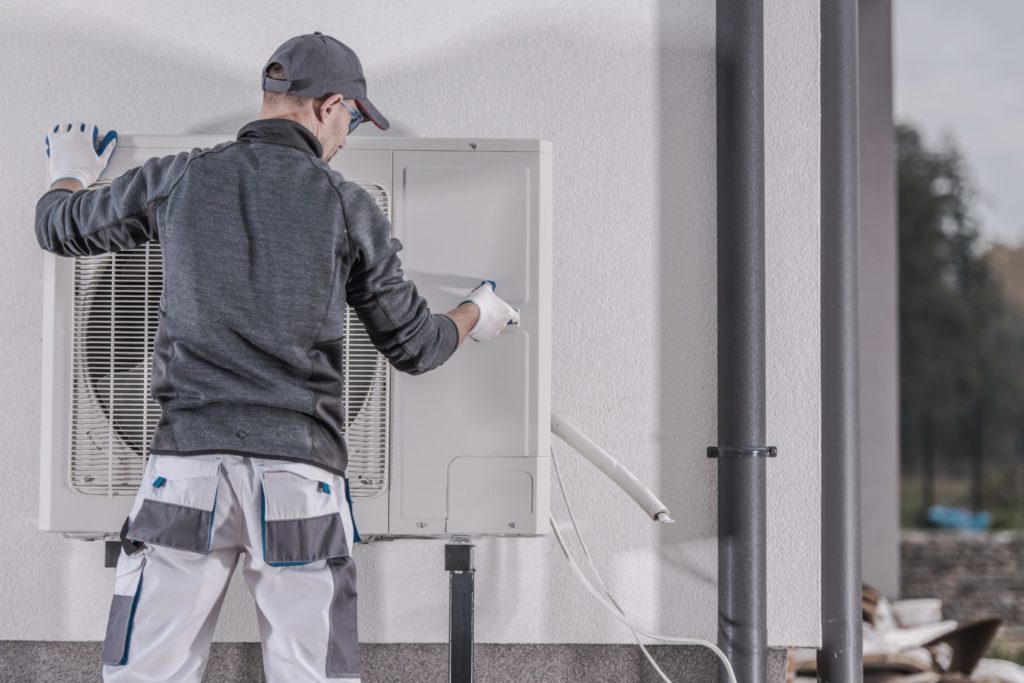Heat pumps are a popular choice for home heating and cooling systems and have become the mainstream equipment in most houses. If you have a heat pump as part of your HVAC system, you know that a little bit of ice on the unit is normal. However, while it is normal for outer evaporator coils on a heat pump to get cool, it is not normal for the unit to completely freeze up. If you find yourself asking, “Why is my heat pump freezing up?”, you may have a problem. Let’s take a look at some reasons why a heat pump might be freezing over.
Mechanical Problems and Leaks

In general, your HVAC unit should last around 20 years. With proper care and routine maintenance, you can extend the life of your equipment beyond the expected life span. However, as with most things, age will eventually wear on your system. Heat pump components will wear out, and parts will eventually break. Your unit relies on numerous parts that can get stuck, broken, clogged, or begin to leak over time. Several mechanical issues can cause the evaporator coil to cool too quickly, which will lead to a frozen-over unit.
Low refrigerant levels due to leaks are another common cause of ice on your heat pump. When your unit is low on refrigerant, the pressure drops and causes the evaporator coil to cool rapidly. As a result, returning air delivers humidity and moisture across the coils, which can ice up quickly. This continues until the coil is covered in ice.
Dirty Evaporator Coil
As the refrigerant flows through your heat pump’s evaporator coil, it transports heat to your home during the winter and pulls out heat during the summer. The fins on the coils will collect dust, dirt, and other substances through normal operation. If your coil becomes too dirty, the debris could insulate it and limit its ability to transfer heat. As a result, the refrigerant continues to cool the coil, becoming frozen over time. When the moisture condenses on the coil, it will soon become a block of ice. You can gently pour warm water over the coils to help melt the ice, and an HVAC technician can thoroughly clean the unit to prevent ice buildup.
Excessive Moisture
During regular operation, your heat pump forms water condensation as a by-product of the heating and cooling processes. Under normal circumstances, the water condensation will drain off the unit. If an issue prevents proper drainage, water buildup and extra moisture could become trapped in the heat pump. The excess water will eventually freeze on the coils and refrigerant lines. If you suspect a drainage issue with your unit, you should check the condensate line for a clog or other problem.
Restricted Airflow

Your air conditioner needs a constant flow of air to work. Without adequate airflow, the refrigerant can’t transfer heat, and the evaporator coil cools until it is frozen. When air filters are dirty and clogged, airflow can be hindered, triggering issues with your heat pump. Additionally, closed vents and blocked returns could also prevent adequate airflow. If you notice ice forming on your heat pump, ensure that your air filters are changed and that all vents are open to promote healthy airflow.
Faulty Blower Motor
If your blower is not running up to speed, it can also create airflow issues for your heat pump. A malfunctioning blower can begin short cycling, run at reduced speeds, or fail completely. If any of these things are happening with the blower motor, your heat pump may ice up. To determine if your blower motor is the issue, you will need to contact an HVAC technician to diagnose the problem.
A heat pump that is completely frozen is never a normal occurrence. If your unit is icing up frequently, you should have a professional HVAC technician examine the unit to determine the cause and offer solutions.





